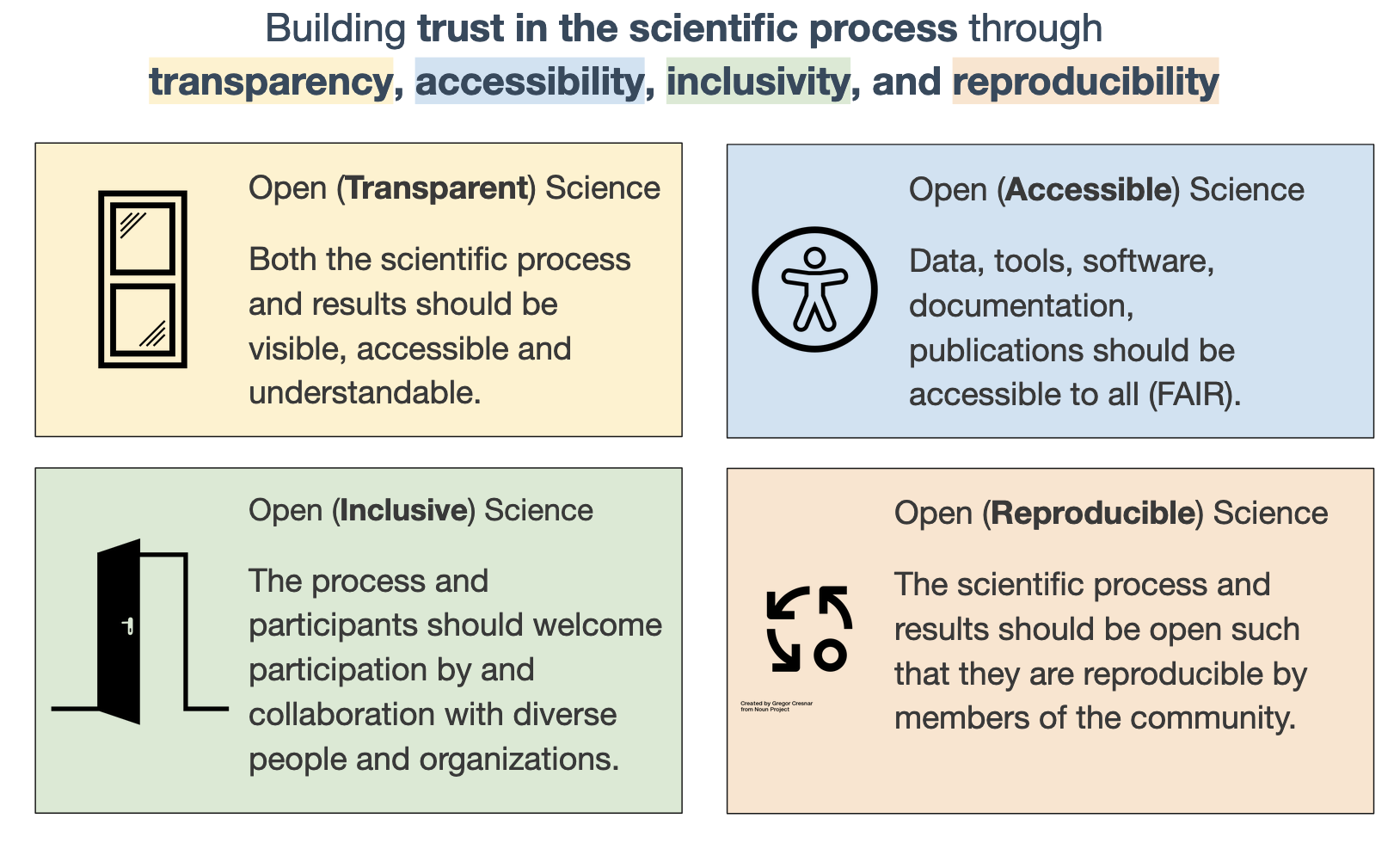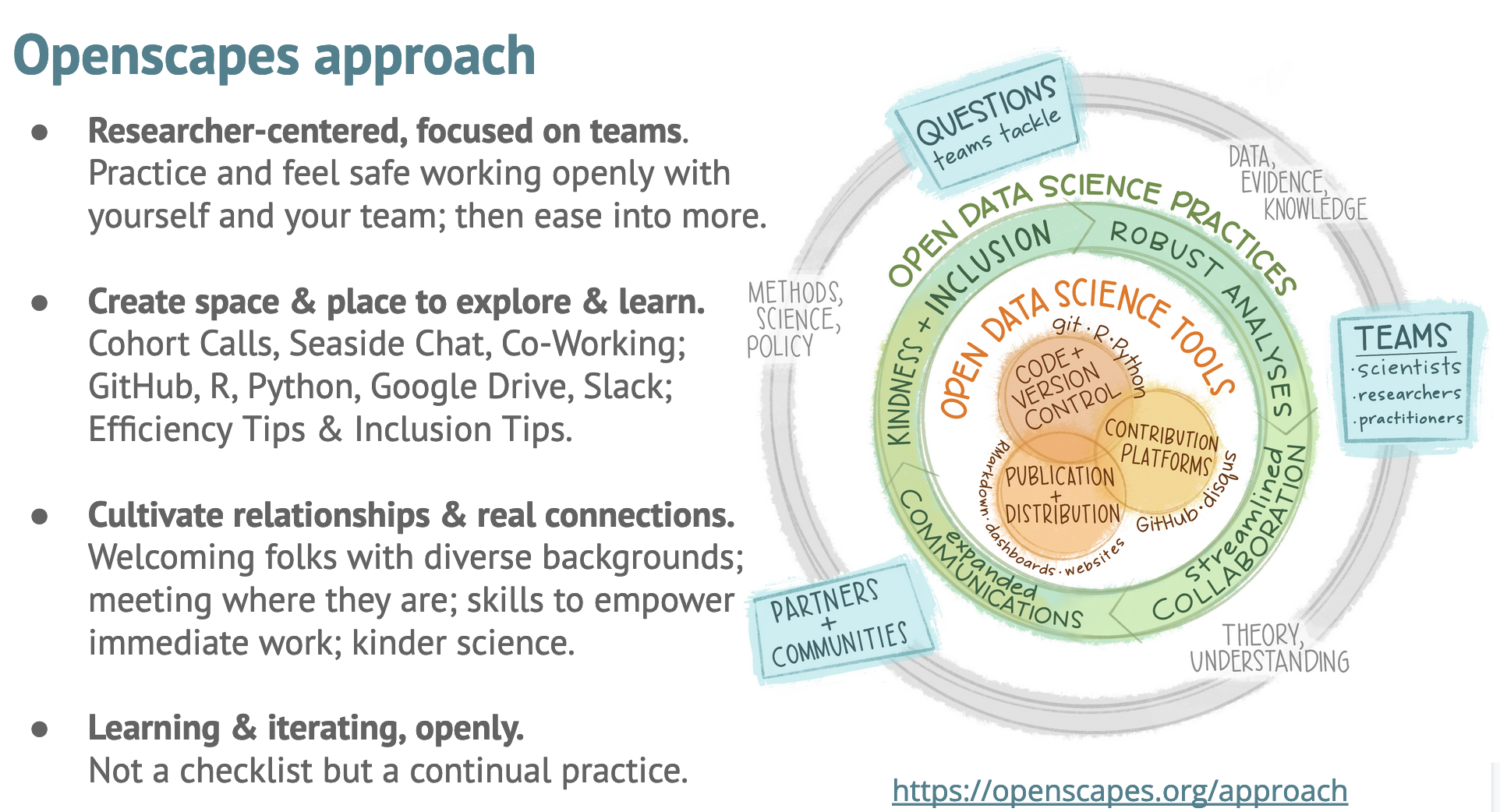Last week NASA led an Open Source Science for Data Processing and Archives Workshop, announcing new initiatives to support open science. This was very exciting to be a part of — we learned about NASA’s continuing leadership in open science and presented some of our work with Openscapes. This is a brief summary, and will be updated with links to slides and recordings.
At the October 14 NASA Open Source Science for Data Processing and Archives Workshop, the Science Mission Directorate shared their vision to enable transformational open science through continuous evolution of science data and computing systems for NASA’s Science Mission Directorate. This vision has three goals:
- Develop and Implement Capabilities to Enable Open Science
- Continuous Evolution of Data and Computing Systems
- Harness the Community and Strategic Partnerships for Innovation
As part of this, they introduced Transform to Open Science (TOPS), a program to increase understanding and adoption of open science principles and techniques. TOPS will focus on capacity building, partner engagement, and incentives to help accelerate scientific discovery through open science, with USD$20 million per year for five years to support these efforts. Below is one graphic from the presentation, and a few twitter threads live during the event from @AstroCrawford @ReaderMeter.

As part of the NASA Open Source Science Highlights, along with Data Catalog, Artificial Intelligence/ Machine Learning (AI/ML), Prizes and Challenges, Citizen Science, and Astrophysics Data Systems, we gave a brief overview about Openscapes. We introduced the Champions Program and our work engaging, empowering, and amplifying research teams. We also highlighted our work with the Distributed Active Archive Centers (DAAC) Mentor Cohort, who are supporting researchers as they transition to open science workflows on the Cloud (see nasa-openscapes.github.io. The DAAC Mentors are hosting a Cloud Hackathon next month, an AGU workshop in December, and a Champions Cohort in early 2022!

There is a lot of inclusive open science momentum going on and we’re really excited to be a part of it!